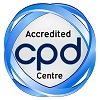
Jean-Pierre Marissal
Faculty of Management, Economics and Science - Hospital Group of the Catholic Institute of Lille, France
Title: Economic and medical assessment of a hospital-based process for the screening and treatment of malnutrition among elderly people
Biography
Biography: Jean-Pierre Marissal
Abstract
Background: Malnutrition among elderly people is a major factor of frailty and dependency, having consequences on both health and quality of life. This factor is also associated with specific difficulties in the process of screening and caring, needing dedicated processes. Objectives: We analyse the economic and medical relevance of an experimental process going from the screening of malnutrition to the definition of individual care plans, and the assessment of the clinical impact. This process required the involvement of hospital workers and ambulatory networks around a specialized hospital team. Data and methods: 272 patients were included between April 2013 and October 2015. Patients were recruited by physicians from the emergency ward (34.9%), the external geriatrics consultation (26.1%), the traumatology ward (11.8%), the cardiology ward (11.0%), other short stay wards (4.6%), and the day hospital for geriatrics evaluation (2.6%). Five general practitioners recruited patients (4.4%). Among the 272 patients, 106 were seen during during a follow-up consultation, on average 7.2 months after their inclusion. Results: The specialization of the team and tts central position in the hospital organization ensured the economic viability of the process by allowing a relevant use of the available resources, a constant influx of cases, and a reduced cost of screening and assessing the medical needs. This process was associated with an improved nutritional status for 35.7% of persons displaying a risk of malnutrition, and for 54.5% of patients diagnosed as malnourished at the inclusion. Gains were not limited to the sole nutritional status, inducing positive externalities for the patients of their participation to a nutritional care. Conclusion: The involvement of hospital workers and ambulatory networks has a proven medical interest for the care of elderly patients with malnutrition-related problems.

